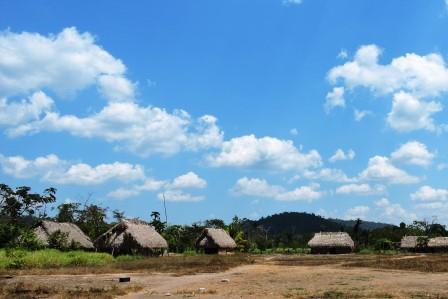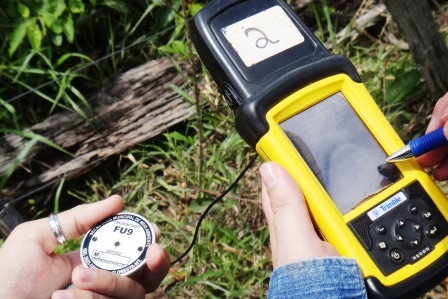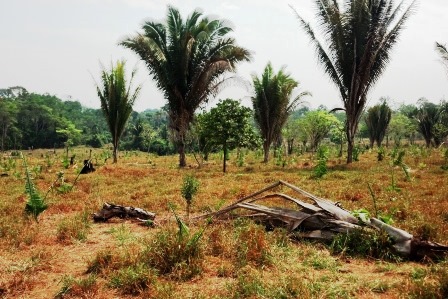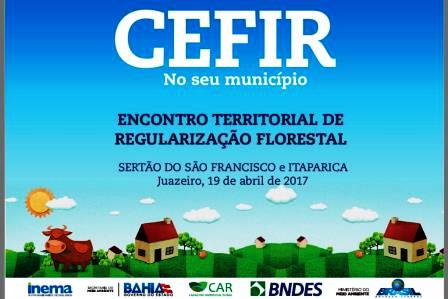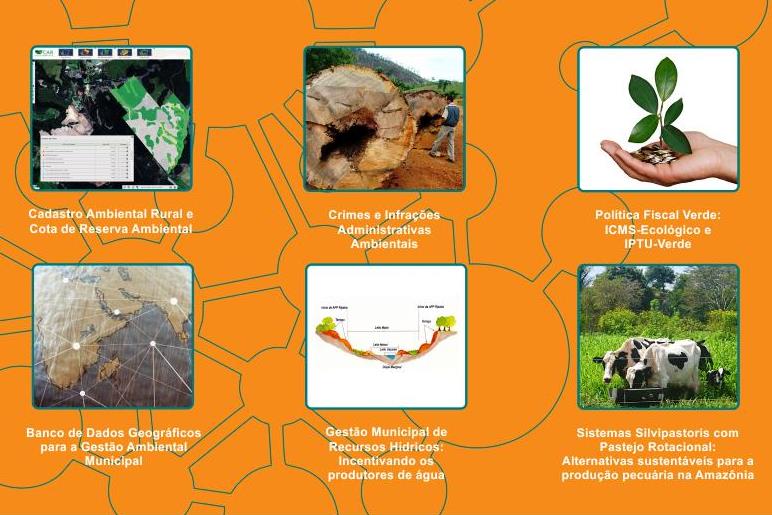Result and impact indicators
The project activities contributed to the outcomes related to Component (2) – Monitoring and Control of the Fundo Amazônia Logical Framework.
The main indicators agreed upon for monitoring this objective were:
Direct Outcome 2.1 - State environmental monitoring, control, and accountability institutions structured and modernized for the implementation and management of the Rural Environmental Registry (CAR) and the Environmental Regularization Program (PRA)
Direct Outcome 2.2 - Expanded access for rural producers in the State of Acre to the environmental regularization of their properties.
Outcome Indicators
-
Number of rural properties with CAR registration requests submitted
Target: 30,000 | Achieved: 72,947
-
Number of rural properties up to 4 fiscal modules with CAR registration requests submitted
Target: 27,000 | Achieved: 68,854
-
Area of rural properties with CAR registration requests submitted (hectares)
Target: 6,600,000 | Achieved: 16,336,353
-
Area of rural properties up to 4 fiscal modules with CAR registration requests submitted (hectares)
Target: 1,200,000 | Achieved: 6,797,976.57
-
Number of rural properties with PRA registration requests submitted
Target: 12,000 | Achieved: 1,530
-
Number of rural properties up to 4 fiscal modules with PRA registration requests submitted
Target: 5,000 | Achieved: 1,268
-
Area of rural properties up to 4 fiscal modules with PRA registration requests submitted (hectares)
Target: 500,000 | Achieved: 102,394
Regarding the PRA-related results, the state argues that producer adherence to the PRA was lower than expected. Additionally, the effects of the COVID-19 pandemic impacted in-person services and environmental task forces for CAR notification, correction, and PRA registration. However, a positive outcome was observed in the number of CAR analyses conducted - an activity less dependent on face-to-face contact - which exceeded the initially planned target by approximately 20%.
- Individuals trained for CAR and PRA implementation and management (number of public servants)
Target: 200 | Achieved: 113
Outputs Indicators
-
Number of rural properties up to 4 fiscal modules that received support for CAR registration through “active search” for information and documentation collection
Target: 27,000 | Achieved: 49,393
-
Area of rural properties up to 4 fiscal modules that received support for CAR registration through “active search” (hectares)
Target: 1,200,000 | Achieved: 5,990,475.18
-
Number of rural properties up to 4 fiscal modules with Technical Environmental Analysis Reports
Target: 10,000 | Achieved: 12,496
-
Area of rural properties up to 4 fiscal modules with Technical Environmental Analysis Reports (hectares)
Target: 1,000,000 | Achieved: 2,079,808.22
-
Number of rural properties up to 4 fiscal modules with Projects for the Restoration of Degraded and Altered Areas (PRADA) developed
Target: 5,000 | Achieved: 387
-
Area of rural properties up to 4 fiscal modules with PRADA developed (hectares)
Target: 500,000 | Achieved: 29,546.79
As previously mentioned, the results related to the PRA are explained by the low adherence of producers and the impacts of the COVID-19 pandemic. Nevertheless, the strong performance in the number of CAR analyses conducted (“Number of rural properties up to 4 fiscal modules with Technical Environmental Analysis Reports”) stands out, as this activity is less reliant on in-person contact and exceeded the initial target by approximately 20%.
Institutional and administrative aspects
State Decree No. 7,734, dated June 6, 2014, established the Technical Office for the Management of the CAR and PRAAC, responsible for managing the CAR and its instruments, through joint action between SEMA (State Secretariat for the Environment) and IMAC (Institute of Environment of Acre).
The Technical Assistance and Rural Extension Company (EMATER) supported the process by providing services in all 22 municipalities of Acre, promoting the CAR and assisting with registration and corrections. Federal Law No. 12,651/2012 instituted the CAR and initially set a four-year deadline for registration, which was subsequently extended several times.
Technical partnerships played a fundamental role, notably with GIZ and the Amazon Environmental Research Institute (IPAM). These partners conducted studies and diagnostics of areas with environmental liabilities, assessed environmental conditions in Permanent Preservation Areas (APPs) and Legal Reserves (RLs) in Acre, proposed forest restoration methodologies using Agroforestry Systems (SAFs), developed a decision-making key (matrix) based on the Forest Code, analyzed CAR overlaps using a “database cleaning” methodology, facilitated exchanges, among many other activities.
Risks and lessons learned
The project achieved significant results for the State, contributing to its environmental policy. The establishment of the Technical Office for the Management of CAR and PRA AC ensured continuity in the technical coordination of the project, even across different electoral mandates, and enabled the integration of technical, financial, and administrative resources during and after the project’s implementation.
The integration of SEMA’s technical team with the development team of the Brazilian Forest Service (SFB), responsible for SICAR, proved to be an effective strategy. It allowed for the development of the state-level CAR system, including customizations, creation of analysis modules, and system maintenance. States that were more advanced in CAR implementation, such as Acre and Rondônia, led the development of functionalities, steps, and workflows not yet foreseen at the federal level.
According to the State, the exchange between Acre and Rondônia was essential, involving joint studies, diagnostics, spatial analyses, and specification of SICAR modules, thereby strengthening the implementation of the projects in both states.
Sustainability of results
In 2019, SEMA incorporated into its strategic planning for the years 2020 to 2023, within the scope of implementing the Forest Code and the Environmental Regularization Program – PRA-Acre, a new arrangement for distributing forest restoration incentive projects using agroforestry systems. This arrangement prioritized municipalities and regions with the highest percentages of deforested areas and environmental liabilities located within State Sustainable Use Conservation Units.
Several programs and projects supported this strategy, including the “Amazon Sustainable Landscapes” project, funded by the Global Environment Facility (GEF), and the Global REDD Early Movers (REM) Program. These initiatives contributed to CAR analysis and the development of PRADAs (Projects for the Restoration of Degraded and Altered Areas) and TCAs (Conduct Adjustment Terms).
A key institutional advancement was the creation of the Integrated Center for Geoprocessing and Environmental Monitoring (CIGMA), which provides qualified information to guide government policy strategies. Other important structures include the CAR Office, the Situation Room, the Division of Forest Restoration and Replenishment, and the Geoprocessing Division of IMAC.
At the federal level, the National Policy for the Recovery of Native Vegetation (Proveg), and more recently, traceability strategies, enable tracking of products from origin to final consumer. These mechanisms ensure sustainable production in compliance with environmental legislation and are aligned with the CAR, serving as guiding policies for its initiatives.
New projects offer opportunities to continue implementing the Forest Code and supporting the monitoring of the Environmental Regularization Program, especially for already regularized properties. One such initiative is the recently approved Fundo Amazônia project Towards Zero Illegal Deforestation in the state of Acre.




